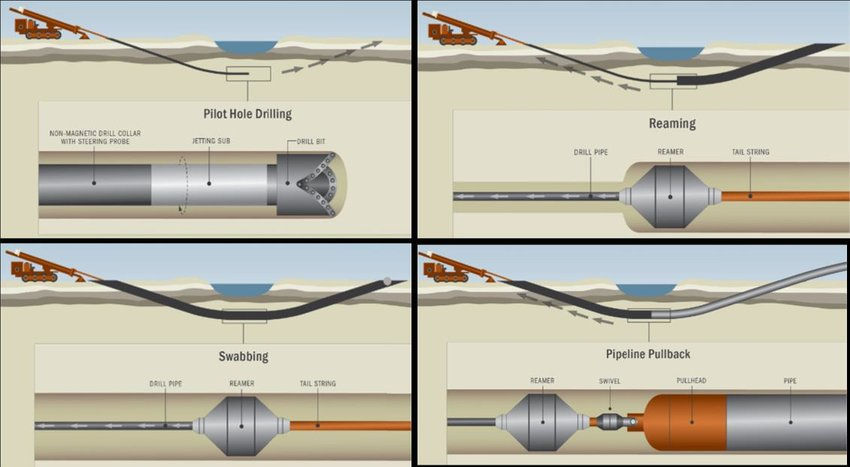Are There Any Regulations or Guidelines for Using Automatic Horse waters?
- Grid Tech
- Feb 12, 2024
- 4 min read
Picture this: A serene horse pasture where horses are happily grazing, and the sun is gently setting in the background. In this idyllic scene, the last thing you want to worry about is the availability of clean and safe water for your equine companions. This is where automatic horse waterers come into play, ensuring that your horses remain hydrated without the constant need for manual refilling.
But, as responsible horse owners, we should always be aware of regulations and guidelines related to the use of automatic horse waterers. Are there any specific rules you need to follow? What guidelines should you keep in mind to ensure the well-being of your horses and compliance with local regulations?
In this blog, we will dive deep into the world of automatic horse waterers, exploring the regulations and guidelines that pertain to their use. By the end of this read, you will have a clear understanding of how to use these convenient devices while keeping your horses' health and safety a top priority.

Let’s get started!
Regulations and Guidelines for Using Automatic Horse Waterers in Stable
Understanding the Basics of Automatic Horse Waterers:
Before we delve into the regulations, let's recap what automatic horse waterers are and why they have become a staple in equine care. These ingenious devices are designed to provide a continuous supply of fresh and clean water to your horses. They eliminate the need for manual filling, reducing the risk of dehydration and ensuring your horses have access to water around the clock.
Compliance with Local Regulations:
The first step in using an automatic horse waterer is to ensure you comply with local regulations. Regulations can vary from one region to another, so it's essential to research and understand the specific requirements in your area. Some jurisdictions may have rules about water quality, installation, or even the type of waterer allowed. Always check with your local equine or agricultural authorities to stay on the right side of the law.
Water Quality Standards:
When it comes to using automatic horse waterers, water quality is paramount. Clean and safe water is crucial for your horse's health. Local authorities often set standards for water quality, including acceptable levels of contaminants such as bacteria, minerals, and chemicals. Ensure that your automatic horse waterer meets these quality standards and regularly test the water to ensure it remains within acceptable limits.
Installation and Maintenance:
Proper installation and maintenance of your automatic horse waterer are key factors in compliance with regulations. Many jurisdictions have guidelines on how these waterers should be installed to prevent accidents and contamination. Always follow the manufacturer's installation instructions, and consider seeking professional installation services if you're unsure.
Regular maintenance is equally important. Most regulations require owners to keep their automatic horse waterers in good working condition, with routine checks for leaks, malfunctions, or any signs of wear and tear. Keeping a maintenance log can help you stay organized and demonstrate your commitment to compliance.

Accessibility for Horses:
One essential aspect of using automatic horse waterers is ensuring that they are accessible to horses of all sizes and ages. Some regulations may specify the height at which the waterer should be installed, while others may require the presence of anti-injury features to prevent accidents. Make sure that your chosen automatic horse waterer meets these accessibility requirements.
Waterer Placement and Pasture Management:
The location of your automatic horse waterer within the pasture is another area that may be subject to regulations or guidelines. Authorities may have rules about the distance between waterers, especially in larger pastures, to ensure all horses have access. Additionally, consider the waterer's placement concerning drainage and runoff to prevent water contamination.
Electricity and Backup Power:
Many automatic horse waterers require electricity to function. Regulations may require the use of GFCI (Ground Fault Circuit Interrupter) outlets to prevent electrical hazards. It's also a good practice to have a backup power source, such as a generator or battery backup, in case of electrical outages. This ensures a continuous water supply even during emergencies.
Waste Management:
Proper waste management is essential for compliance with environmental regulations. Automatic horse waterers can produce wastewater that contains contaminants like manure or excess minerals. Check local guidelines on how to handle and dispose of this wastewater responsibly to avoid environmental issues.
Inspections and Records:
Many regions require regular inspections of automatic horse waterers to ensure they comply with safety and water quality standards. Keep thorough records of inspections, maintenance, and water quality tests, as these records can be invaluable if questions of compliance ever arise.
Penalties for Non-Compliance:
Understanding the consequences of non-compliance is crucial. Penalties for violating regulations related to automatic horse waterers can vary widely, from fines to legal actions. Being proactive in adhering to these guidelines not only protects your horses but also your wallet.

The Final Notes
In conclusion, while automatic horse waterers are a convenient and efficient way to ensure your horses have constant access to clean and safe water, they come with responsibilities. Regulations and guidelines exist to safeguard your horses' well-being and ensure environmental and safety standards are met.
Always take the time to research and comply with local regulations, particularly those related to water quality, installation, and accessibility. Regular maintenance, proper waste management, and keeping meticulous records are essential practices for responsible horse ownership.
By staying informed and following these regulations and guidelines, you can enjoy the peace of mind that comes with knowing you're providing the best care for your equine companions while staying on the right side of the law.


Comments